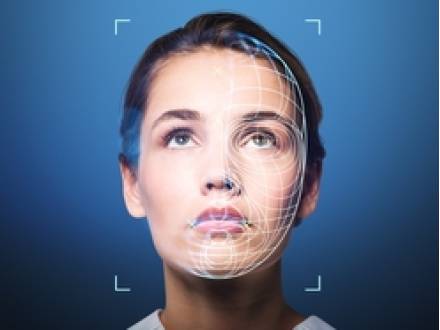A.I. Facial Recognition Technology Leads to False Arrests
 In the United States, people rely on law enforcement officials to uphold justice. Police officers are supposed to investigate crimes using the resources available to them and perform arrests based on valid, reliable evidence. Unfortunately, many officers fail to uphold this ideal, and they often take shortcuts or make assumptions that can lead to false arrests.
In the United States, people rely on law enforcement officials to uphold justice. Police officers are supposed to investigate crimes using the resources available to them and perform arrests based on valid, reliable evidence. Unfortunately, many officers fail to uphold this ideal, and they often take shortcuts or make assumptions that can lead to false arrests.
Police have come to rely on technology, including facial recognition systems that identify suspects using artificial intelligence (AI), without verifying that the information provided by these systems is correct. As a result, many people face arrests, criminal charges, and imprisonment based on shoddy police work.
People who are arrested and charged with crimes often face an uphill battle as they respond to accusations. Even when someone can show that they did not commit an offense, they may struggle to argue against technological systems that are considered infallible. Representation by a skilled Hartford, CT criminal defense attorney is crucial in these situations. An experienced lawyer can help ensure that a person’s rights are protected as they defend against a criminal conviction.
False Arrests Based on AI Facial Recognition Systems
Facial recognition technology is supposed to be just one tool among many used by police. While these systems may be able to match images of suspects with people in databases, they are not always reliable, especially when using low-quality images. The U.S. Department of Justice has provided guidance to law enforcement agencies on how this technology should be used, stating that the results of facial recognition searches are not considered positive identification and do not establish probable cause to arrest a suspect. These systems should only be used in an advisory capacity, and further investigations are necessary to verify that suspects have a connection to the crimes in question.
Unfortunately, some police departments fail to uphold these standards, and there have been a number of cases where people have been arrested, charged with crimes, and held in detention based solely on the results of facial recognition searches. The full extent of these practices is unclear, since many police departments do not keep records detailing when facial recognition systems are used, and state laws often do not require them to report on their uses of these technologies. However, one company that provides facial recognition software to police has stated that its tools are used by more than 3,000 police departments, and investigations have identified dozens of departments that have used these technologies to perform arrests without obtaining other forms of evidence against suspects.
These investigations have shown that police have engaged in a number of questionable practices during investigations, including:
-
Failing to check alibis: Police have arrested people based on facial recognition matches even when suspects can demonstrate that they were elsewhere when the crime took place. In one case, a man was arrested for a crime that took place in Louisiana, even though he had never been to that state and could show that he was working in Georgia on the day the crime was committed.
-
Ignoring other evidence: In some cases, police have continued to pursue charges against suspects identified through facial recognition, even though other evidence points to different suspects. One man in New Jersey was charged with a crime when DNA evidence and fingerprints indicated that someone else had committed the offense.
-
Ignoring other physical characteristics: When a facial match is made, police may rely solely on that identification while failing to consider other details, such as body types or tattoos. In one case, a woman was arrested for carjacking, even though she was seven months pregnant at the time of the offense and security camera videos did not indicate that the suspect was pregnant.
-
Using unreliable witnesses: Police officers often encourage witnesses to identify specific suspects, and they may rely on these identifications, even when witness statements are not reliable. In one case in Detroit, a suspect in a robbery was arrested after his identity was confirmed by a security guard who was not present during the crime in question.
In many cases, people who have been falsely arrested and charged with crimes have been exonerated, but they have still experienced a great deal of difficulty due to questionable police practices. Some suspects are held in prison for months or even years because they are unable to pay bail, leading to substantial financial difficulties for them and their families and other problems affecting their personal lives and careers. Understanding how to address the improper use of facial recognition systems during a criminal case can be difficult, which is why it is so important to work with a criminal defense lawyer who can help protect your rights.
Contact Our Hartford, CT Criminal Defense Attorneys
If you are facing criminal charges, and you believe that facial recognition was used to identify you as a suspect, you will need to determine how you can address this issue during your defense. At Woolf & Ross Law Firm, LLC, our Connecticut criminal defense lawyers will provide you with effective legal representation. We will address issues related to police procedures while working to demonstrate your innocence, and we will fight to help you avoid a conviction. Contact us today at 860-290-8690 to arrange a free consultation and get the defense you need.






